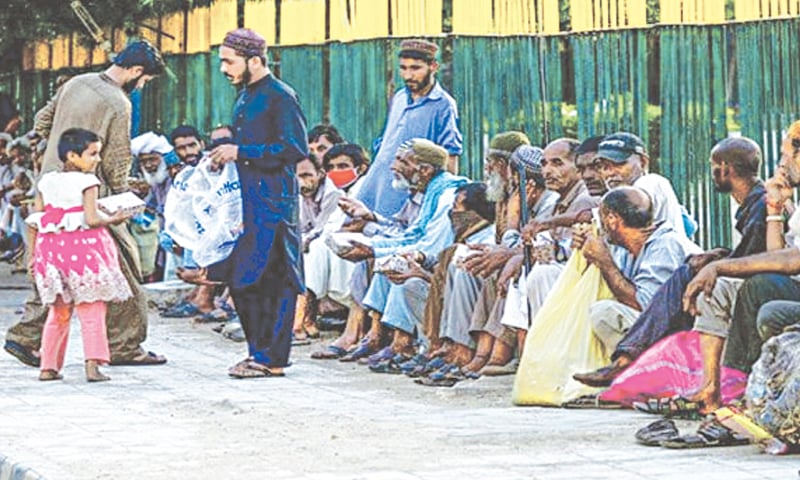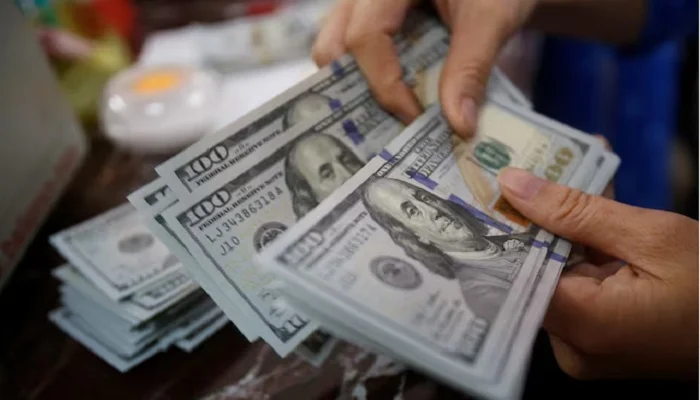By Sakib Sherani
Published in DAWN on December 09, 2021
SINCE the country suffered its largest balance-of-payments crisis in 2018, Pakistan has been forced to borrow $35 billion (gross) from a variety of sources, including the IMF, multilateral, bilateral as well as commercial lenders. These loans have been contracted by mortgaging national pride and putting the country’s sovereignty at risk.
Yet, over the same period Pakistan has imported cars, SUVs, extra petroleum to run the new autos, and mobile phones totalling $8bn! This staggering amount beggars belief and is equal to nearly 25 per cent of the total gross foreign loans contracted by Pakistan during this period.
Unfortunately, the passion of Pakistani elites for ‘foreign’ lifestyles and consuming imported non-essential goods is not restricted to cars, SUVs and mobile phones. During this period (2019-21), new franchises of foreign fast food outlets and cafes and restaurants have opened up that not only import a range of expensive ingredients, but also pay hefty franchise fees and remit profits in US dollars. In addition, new mega malls selling imported branded goods have also opened up. The elite craving for fine cigars, cigarettes, pipe tobacco, fruit juices, chocolates, exotic fruits and a bewildering range of consumer products such as cosmetics etc. is over and above the foregoing.
Data compiled from the State Bank and the Pakistan Bureau of Statistics helps put a number to this elite consumption feeding frenzy. The cumulative total since 2019 for the goods considered here, which does not cover by far the complete spectrum of ‘non-essential’ imports, amounts to a staggering $13bn spent on these imports. This magnitude of wasteful expenditure is mind-boggling and beyond criminal. Why and how has this been allowed to happen in a poor country struggling to stay afloat? Especially when this lavish lifestyle is not financed by Pakistan’s own meagre savings but by dipping into foreign savings, mainly in the form of expensive loans.
(One answer lies in the fact that Pakistan’s “dollar-ised” elites are insulated from the crises their feeding frenzy has created. In fact, every time the rupee weakens, the value of their foreign currency assets rises — while the rest of the nation’s citizens are left with the inflation tax and the burden of adjustment of an IMF programme).
This pattern of thinking and policy behaviour is not unique to the present government. Past governments have exhibited the same poor thinking and questionable choices, none more egregiously than between 2004 and 2007, when the government headed by Mr Shaukat Aziz made the provision of an illusion of prosperity, built on borrowed money, as a priority over actual development. ‘Cars on the roads’ and the opening of foreign restaurant franchises became government policy goals, rather than provision of mass transit systems for the major urban centres, preparing for the impending energy crisis, or investing in the social sectors.
As a result of this deficient thinking, Pakistan has ended up importing cars/SUVs and mobile phones alone worth $30bn cumulatively since 2006! This number is based on published annual data from the State Bank. With franchise fees and profit repatriation, the import of non-essential foreign consumer goods and services totals scores of billions of US dollars over this period. To put this figure into perspective, this amount could fund the construction cost of at least two Diamer-Bhasha dams, which Pakistan is struggling to finance.
For a country running out of dollars to import essential energy, machinery and capital goods, food and raw materials, such poor choices made by Pakistan’s elitist policymakers represent both capacity and mindset issues, as well as a Herculean ignorance of the path of development taken by high-performing developing economies.
Sadly, it’s not just scarce foreign exchange that has been expended on this useless venture. As the number of cars on Pakistan’s roads has increased from 1.3 million in 2005 to an estimated 7.7m currently, precious resources from the budget have had to be diverted to build the corresponding infrastructure — a network of roads, highways, underpasses and flyovers — to accommodate the additional traffic. The resulting vehicular emissions are a primary cause for pollution in cities like Lahore, which has become the number one public health issue in Punjab and KP, while congestion and traffic snarls are common features in the nation’s cities. The increase in traffic accidents and its human toll is an added cost.
Unfortunately, the fixation with cars continues to this day. The PTI government has given incentives to the auto industry as part of its ‘growth push’, while ministers have spoken about having a ‘car in every household’ as a policy objective. The government’s auto policy calls for importing 46 new makes and models in an effort to rein-in car prices, with the ECC spending more time than warranted on this elite fixation.
Even during periods of balance-of-payments stress and outright crises, Pakistani policymakers have generally abstained from a complete ban on imports of non-essential goods, despite the allowance under WTO rules for temporary measures. Instead, the preferred policy has been to increase import duties and impose cash margins on letters of credit.
The fallacy of this approach has not been obvious to policymakers unfortunately. An elite that is untaxed and unburdened in any way by responsibility to the state can well afford the incremental import duties etc. on the cars — while the nation collectively cannot afford the incremental foreign exchange spent on these senseless imports. (On its own, it can be argued that there is nothing wrong with imports of consumer goods, provided the country’s exports and foreign exchange earnings, rather than loans, were paying for this wasteful expenditure.)
The conclusions from the foregoing data and argument are as follows: 1) Pakistan has to learn to live within its means; 2) the country’s obsession with imported cars (and other foreign consumer goods) is unaffordable as well as unsustainable; 3) elitist policymakers would do well to study the development path and policies of successful peer countries; and, 4) the country’s free-riding elites have to be made to carry their share of responsibility.






